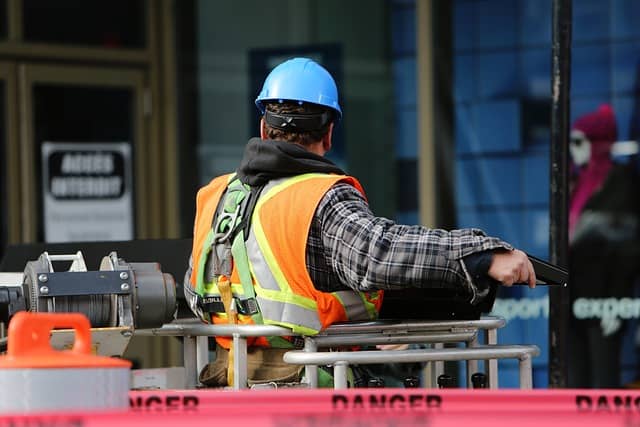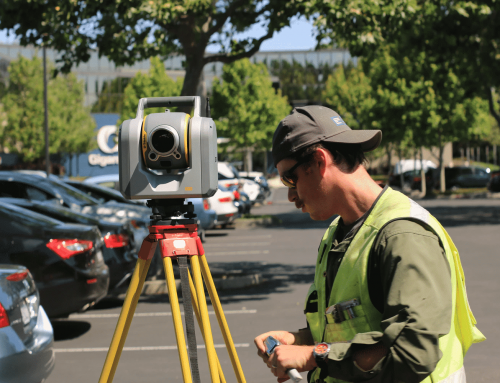Did you know that over 1.5 million new residential buildings have been completed so far this year? If you own one of the many residential buildings in this country, you might be looking for ways to make a better profit off the property.
One solution might be to change the property from a residential building to a commercial one. However, it’s vital to remember that to do this, you must go through a zoning change.
Sadly, this is no easy task. In this guide, we’ll explore the steps that go into this zoning change designation. That way, you can decide if the zoning change from residential to commercial is correct for you.
Can You Convert the Residential Building to a Commercial?
Unfortunately, there needs to be a more straightforward answer to this question. Why? Because all the laws surrounding zoning are regulated on a local level. However, for the most part, the answer is yes.
As long as the housing and zoning laws allow you to, you can convert residential buildings into a commercial zoning designation. This process is known as rezoning. To discover more about it, you should check out this helpful guide here for more information.
Things to Consider When Making This Zoning Change
You’ve already decided to switch from residential zoning to commercial. As such, you can handle the different types of zonings besides these two.
That being said, there are some other considerations you need to keep in mind before proceeding. In this section, we’ll be discussing them in more detail.
Related: What You Need to Know About Zoning Codes
Is It Worth It?
Changes are occurring in the commercial real estate landscape. In the past, office buildings were once a lucrative form of investment. However, these days thanks to remote work, the value of office buildings has plummeted by 39%.
As such, you should make sure that you’ll be able to receive an ROI (or return on investment) from whatever residential property you plan on converting to commercial usage.
Laws Around Outside Work
You can make changes to the inside of the building. However, there could be laws that prohibit any external work from occurring.
The Surrounding Properties
Where is the property located? If it’s next to a bunch of similar residential buildings, you can expect more pushback from homeowners who don’t want increased traffic, noise, and construction.
How to Change Zoning From Residential to Commercial
In this section, we’ll go over the usual steps that people take to begin the rezoning process.
Remember that zoning changes are incredibly complicated. That’s why you should hire an expert that offers many different zoning services.
Learn All the Zoning Laws
Remember that zoning laws vary widely depending on where you want to build. So do a deep dive into the local regulations and rules before you get started. If you aren’t sure where to find them, contact your local planning office for more help.
Discuss the Issue With Your Neighbors
It’s not uncommon for neighbors to oppose rezoning. This isn’t surprising considering the increased traffic, noise, and construction that rezoning often brings.
So please talk with your neighbors and discuss the issue with them. If you can get them on your side, it will make things much easier.
Apply for Rezoning
After all your research, it’s time to apply for a rezoning. The process for completing this will vary depending on where you live. The specific applications will depend on the city you’re rezoning in. For example, let’s say you live in Charlotte, North Carolina.
In that case, you would reach out to the members of the planning staff to submit your application. Also, keep in mind that you will need to pay a fee as well. Usually, this costs hundreds, but in some cases, it can cost thousands.
Related: Everything About Zoning Variance and Change
Commission Meeting
The first public meeting surrounding the zoning change will be the commission meeting. During this time, any member of the public can make their support or opposition to the zoning change known.
You will also be given the chance to explain your plan and justify any inconveniences that might come with it.
Legislative Body Meeting
If the planning committee approves of your zoning change, then the next step is for it to be passed by a legislative body.
They have the final say in whether or not you can rezone. If they say not, then you can apply again. But you’ll usually need to wait a predetermined amount of time.
How to Make Zoning Changes Easy
You will first need a commercial zoning compliance report to apply for a zoning change. This report, which an attorney performed, makes sure that the zoning conditions surrounding your property don’t intrude on any existing ordinances.
This part of due diligence is often a hassle for developers, but Millman National Land Services doesn’t have to be. Our company handles everything, from the ALTA/NSPS Land Title Surveys to the commercial zoning report.
While we take all of the busy work associated with zoning, you can spend your time thinking about more pressing development concerns.
Millman National Land Services makes dealing with zoning changes less of a headache. Learn more about us here to decide if we’re the right option for your needs.
Always Have a Backup Plan With Zoning Changes
Remember that a zoning change from residential to commercial is never a sure thing. Because this change can affect the community around the property, there’s always a chance that they won’t approve it.
So ensure you never put all your eggs into one basket for commercial property. Having a backup plan in case your zoning change isn’t approved can help you recover quickly and move on to your next solution or project.









